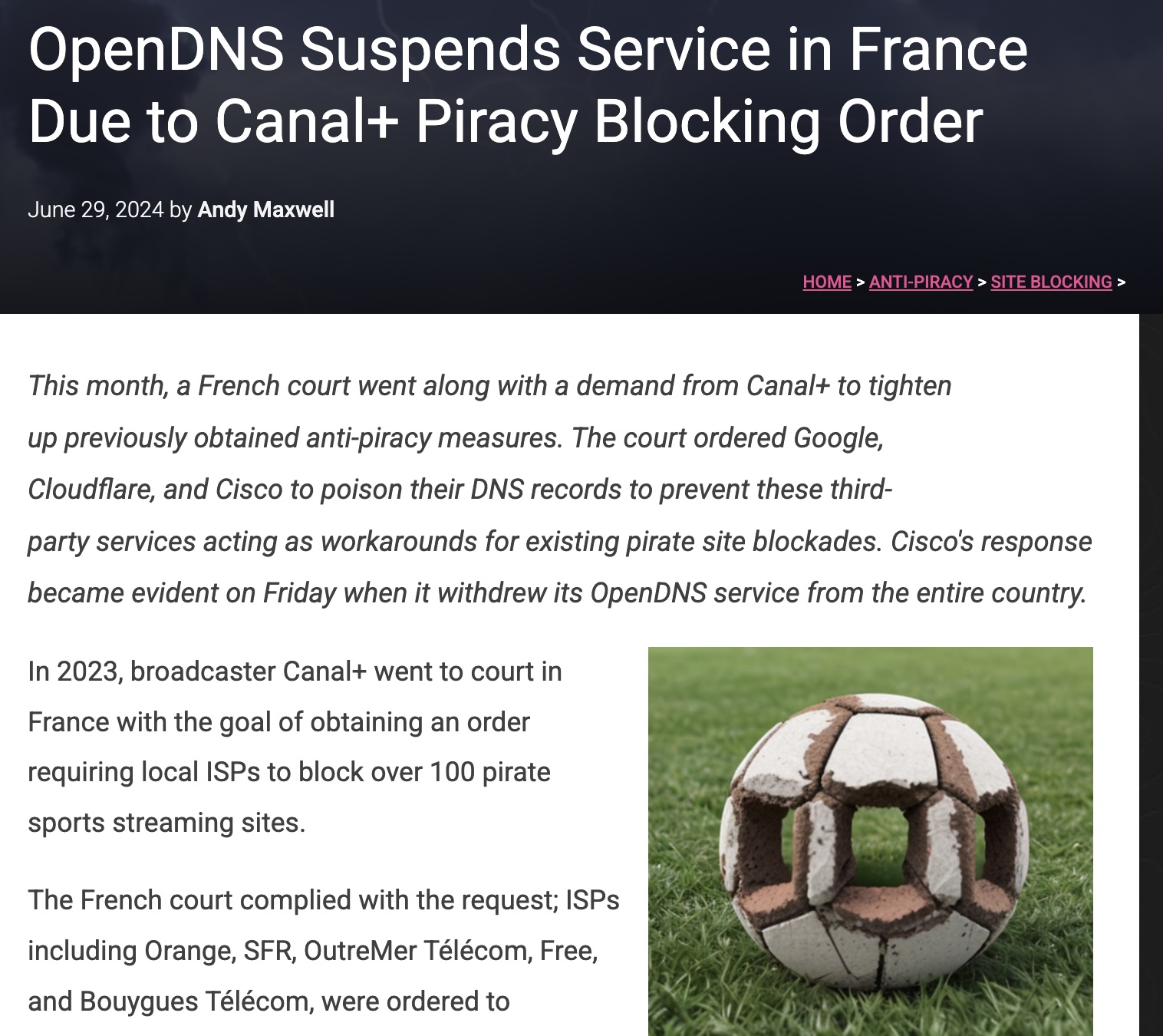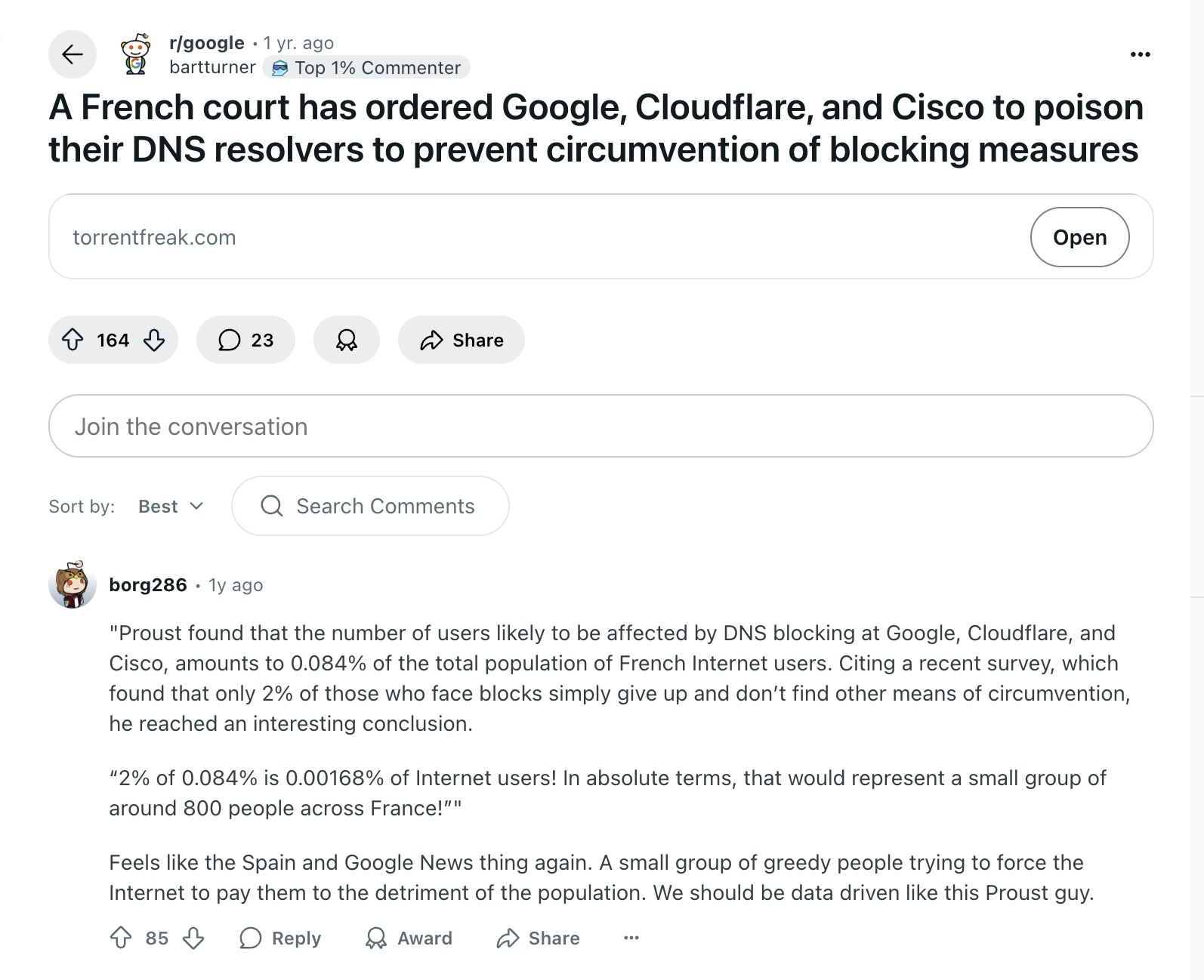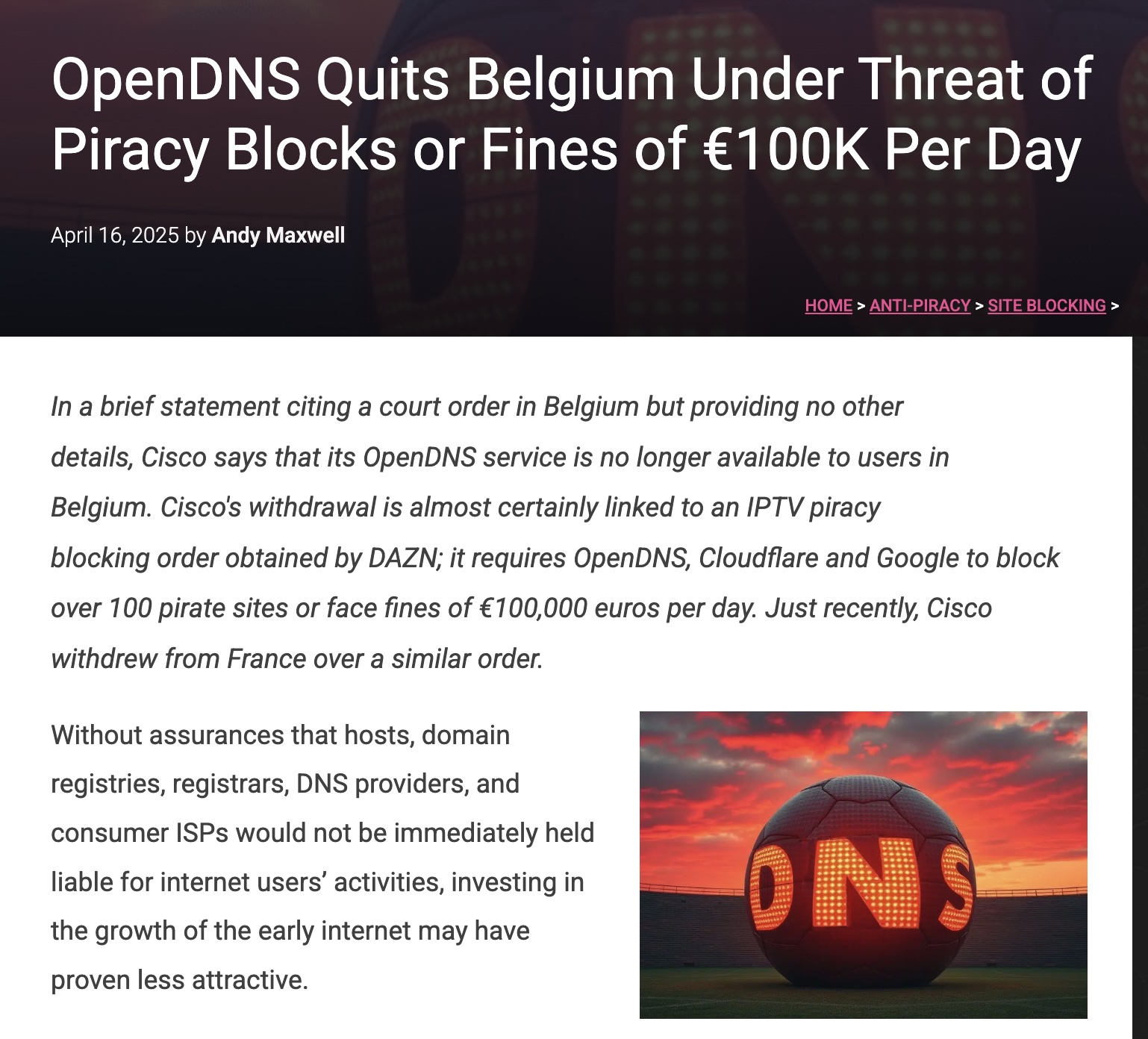DNS is the phone directory of the Internet. We, humans, access the websites (information) through domain names, and the system (web browser) fetches the content on behalf of the user through the IP address and serves the content to the end user. Domain Name System (DNS) translates the domain names to an IP address. So, if DNS restricts the domain access, then the user shall not be able to access that domain, and that makes the DNS an easy and cheap solution to restrict (and block) the domains/web portals.
By default, end users use the resolver DNS of their ISPs. Apart from ISPs' resolvers, multiple public resolvers are also available for free usage, like 1.10.10.10 (Indian Public DNS), 1.1.1.1 (Cloudflare), 8.8.8.8 (Google), 9.9.9.9 (Quad9), 208.67.220.220 (OpenDNS), etc.
Generally, Open Public Resolvers advocates for free, neutral and trusted access to the Internet and are against any restriction or blocking at the DNS level.
In the recent past, open public resolvers are receiving decrees from courts and the
governments across nations for restricting the
access of certain domains for a variety of reasons.
This article will cover and list the few notable attempts here -
-
Quad9 Turns the Sony Case Around in Dresden
On 18th June 2021, Sony Music obtained an injunction from the District Court in Hamburg, Germany (the first of its kind) that requires Quad9 (9.9.9.9 public resolver) to block the popular pirate site [1] [2].
This is the first instance of its type in which the copyright-holder industry has sought to compel a recursive public DNS operator to block access to Internet domain name, and is thought to be a precedent-setting case with far-reaching consequences. Quad9 immediately announced that it would contest the injunction and, on 24th June, announced that it had retained German counsel and would be filing an objection to the injunction.
On 31st August, 2021, Quad9 filed an objection to the injunction, citing a number of flaws in the legal arguments made by Sony, but principally hinging on the fact that ISPs (which actually have a business relationship with infringing parties) are exempted from third-party liability, despite the fact that they also operate DNS recursive resolvers, and that it's a misinterpretation of the law to exclude independent recursive resolvers from that exemption.
Many other public resolvers also echoed their voices in support of Quad9, including DNSFilter [3].
On 06th December 2023, the court ruled in favour of Quad9. [4] [5] -
A French court has ordered Google, Cloudflare, and Cisco to poison their DNS resolvers to prevent circumvention of blocking measures (June 2024). [6]
In June 2024, a French court accepts the request of Canal+ to tighten up previously obtained anti-piracy measures. The court ordered Google, Cloudflare, and Cisco to poison their DNS records to prevent these third-party services from acting as workarounds for existing pirate site blockades. [7]
This all begins in 2023, when Canal+ went to court in France with the goal of obtaining an order requiring local ISPs to block over 100 pirate sports streaming sites. The French court accepted the request and ordered ISPs including Orange, SFR, OutreMer Télécom, Free, and Bouygues Télécom to implement technical measures to prevent access to Footybite.co, Streamcheck.link, SportBay.sx, TVFutbol.info, and Catchystream.com, and dozens of others.
Since the ISPs have their own DNS resolvers for use by their own customers, these were configured to provide non-authentic responses to deny access to the sites in question. Somewhat inevitably, some of the ISP's users reconfigured their machines to use third-party DNS servers, including those provided by Cloudflare, Google, and Cisco.
To prevent these workarounds, Canal+ took legal action against three popular public DNS providers – Cloudflare (1.1.1.1), Google (8.8.8.8), and Cisco (208.69.38.205) – demanding blocking measures similar to those already implemented by French ISPs under Article L333-10 of the French Sports Code. The Paris judicial court responded in May 2024 by handing down two orders; one concerning Premier League matches and the other relating to matches played in the Champions League. The court ordered Google, Cloudflare, and Cisco to implement measures to prevent French internet users from using their services to access around 117 pirate domains. Google previously indicated it would comply, but OpenDNS Suspends Entire Service to the Whole of France [8]. -
OpenDNS quits Belgium [9]
In a brief statement, citing court orders, Cisco announced that (effectively from 11th April 2025) the OpenDNS service is not available to users in Belgium. [10] As per TorrentFreak, Cisco's withdrawal is almost certainly linked to an IPTV piracy blocking order obtained by DAZN, as it requires OpenDNS, Cloudflare and Google to block over 100 pirate sites or face fines of €100,000 per day. Google was also ordered to de-index from search results. Cisco’s suspension of OpenDNS in Belgium mirrors its response to a similar court order in France in 2024. Both statements were delivered without fanfare, which may suggest that the company prefers not to be seen as taking a stand.
During the evening of April 5, Belgian media reported that a major blocking campaign was underway to protect content licensed by DAZN and 12th Player, most likely football matches from Belgium’s Pro League. DAZN described the action as “the first of its kind” and a “real step forward” in the fight against content piracy.
Public Opinion on DNS Policing
David
Reed wrote on LinkedIn that -
The Internet is not "owned". The illusion of hierarchical control is created by
the idea that there is a hierarchical
power centered in ICANN. And most States think they deserve to control
everything (claiming it is to protect their people,
but that's a pretext only; they don't protect their people's rights, they
protect the State).
John Curran
wrote
public DNS resolvers should be neutral - 100% agreed. Of course, we provided
governments no mechanism to exercise
what they viewed as their public policy imperative... so of course outcomes like
this are the result.
Some mutual constructive engagement on the underlying requirements that they
perceive and possible
solutions might go a lot further than just responding with circumventation –
routing around governments just encourages deeper intervention.
A full discussion on the DNS Policing is available here -
References:
- Sony Wins Pirate Site Blocking Order Against DNS-Resolver Quad9 (Updated)
- Sony Music injunction - wikipedia
- DNSFilter CEO Responds to Quad9 Injunction: “DNS resolvers should not police the internet for copyright violations”
- FINAL JUDGMENT
- Quad9 Turns the Sony Case Around in Dresden
- A French court has ordered Google, Cloudflare, and Cisco to poison their DNS resolvers to prevent circumvention of blocking measures
- OpenDNS Suspends Service in France Due to Canal+ Piracy Blocking Order
- OpenDNS Service Not Available To Users In France and Portugal
- OpenDNS Quits Belgium Under Threat of Piracy Blocks or Fines of €100K Per Day
- OpenDNS Service Currently Not Available To Users In Belgium


